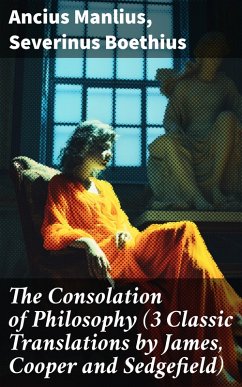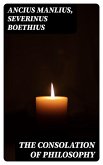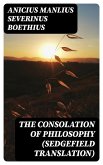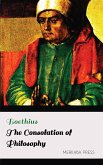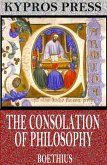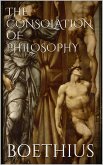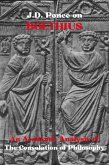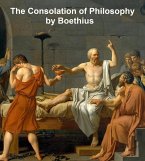In 'The Consolation of Philosophy (3 Classic Translations by James, Cooper and Sedgefield)', readers are invited to explore the timeless philosophical discourse that has influenced centuries of thought. This anthology presents three distinct translations, each offering a unique lens through which the intricate arguments of Ancius Manlius Severinus Boethius are viewed. Delve into the profound exploration of fortune, fate, and happiness, as these thematic elements are woven through a tapestry of diverse literary styles that showcase the translators' different approaches and interpretations. Highlighted among the collection are poignant reflections and dialogues that continue to resonate, transcending their medieval origins to speak to universal truths. The translators, collectively contributing significant scholarly expertise, bring Boethius'Äôs ideas into dialogue with both historical and contemporary thought. James, Cooper, and Sedgefield each represent different eras of philosophical engagement, allowing readers to appreciate the evolution of interpretive frameworks over time. This confluence of voices is rooted in the rich tradition of late antiquity and the ensuing Middle Ages, contextualizing Boethius'Äôs work within a broader literary and philosophical canon. This anthology is an invaluable resource for those seeking to deepen their understanding of philosophical discourse. The ability to explore multiple viewpoints within a single volume provides a comprehensive study of Boethius'Äôs lasting impact. Readers are encouraged to immerse themselves in this collection for its diverse perspectives and historical insights, gaining a renewed appreciation for the dialogue between past and present interpretations. By engaging with this work, scholars and readers alike can appreciate the dynamic interplay of philosophical thought across time.
Dieser Download kann aus rechtlichen Gründen nur mit Rechnungsadresse in A, B, BG, CY, CZ, D, DK, EW, E, FIN, F, GR, H, IRL, I, LT, L, LR, M, NL, PL, P, R, S, SLO, SK ausgeliefert werden.

